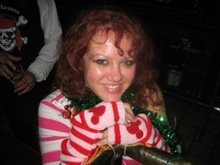Sounds From the Circle:
Wax Cylinder Recordings of Charles Fletcher Lummis
Exhibition Run: May 9–July 5, 2009
The Southwest Museum of the American Indian presents Sounds From the Circle: Wax Cylinder Recordings of Charles Fletcher Lummis, featuring cylinders, equipment, musical transcriptions, and photographs of the numerous California Hispanic folksingers from the turn of the 20th century that are held in the Braun Research Library Sound Archives.
In a 1905 article titled “Catching Archaeology Alive,” Charles F. Lummis, founder of the Southwest Museum, sought to persuade the Archaeological Institute of America that his “large-scale folk-songs of the Southwest project” was archaeology. To those in the organization who thought otherwise, Lummis assured that “in ten years it will be,” and that if not recorded now, the songs would be “as dead and gone as the rest.” Lummis’s conviction of disappearing cultures was largely based on the fact that people in the Southwest who had taught him songs a decade earlier couldn’t remember them. He felt that by recording these songs he was preserving “the earliest American Classics,” which were as worthy of saving as their ancient counterparts from Greece and Rome.
“The foresight and dedication Lummis had in recording these vanishing songs gives us a strong sense of purpose that challenges us to continue to preserve these treasured recordings onto the latest, most technologically advanced formats available so that they can live on and inspire generations to come,” said John Gray, President and CEO, Autry National Center.
Over the years, efforts to preserve the recordings and make them accessible were undertaken. Staff at the Southwest Museum copied the wax cylinders to other formats. Preservationists at Yale University copied them onto aluminum discs in the 1930s. In the following decade, the Library of Congress copied many of the Spanish songs to ten-inch acetate disks. Later, in the 1960s, these formats were put onto reel-to-reel tapes. Finally, in 1984, they were transferred onto cassette tapes. But all these formats have deteriorated significantly, and earlier copying techniques and technologies did not properly pick up the sonic information. To correct these deficiencies, a new preservation project was launched in the summer of 1990.
This new wax cylinder project originated when Dan Reed (a local historian, vintage sound recording aficionado, photographer, and a veteran of the McMurdo station in Antarctica) met with Dr. Michael Heisley, the Southwest’s then Curator of Folklore. Both were passionate about preserving the priceless treasures inscribed on the Southwest’s wax cylinders. One of the group’s earliest accomplishments was to bolt the cabinets holding the priceless collection to the walls so that the cylinders would be prevented from falling during seismic events. Broken cylinders were also painstakingly restored to be transcribed anew.
In ensuing years, the project’s visibility has continued to grow through presentations at the Braun Library, articles in newspapers, and in radio and TV broadcasts as well as in discussions between the team and professionals. To date, the group has completed recording into a digital format approximately 450 cylinders that had never been reformatted.
We know now that many of the songs haven’t died out. In fact, there are families and groups in Southern California who still recognize and perform many of the songs Lummis recorded.
Southwest Museum of the American Indian
The Southwest Museum holds one of the nation’s most important museum, library, and archive collections related to the American Indian. In addition, it has extensive holdings of pre-Hispanic, Spanish Colonial, Latino, and Western American art and artifacts. For over 100 years it has supported research, publications, exhibitions, and other educational activities to advance the public’s understanding and appreciation of the Americas, with particular emphasis on the western United States and Mesoamerica. The Southwest Museum is located at 234 Museum Drive in Mt. Washington and is easily accessible via the Metro Rail Gold Line, which stops directly across from the museum.
The Southwest Museum and the museum store are open Saturday and Sunday, noon to 5:00 p.m., during restoration and conservation projects. Admission is free.
Autry National Center of the American West
4700 Western Heritage Way
Los Angeles, CA 90027
323.667.2000
www.autrynationalcenter.org
Subscribe to:
Post Comments (Atom)





No comments:
Post a Comment